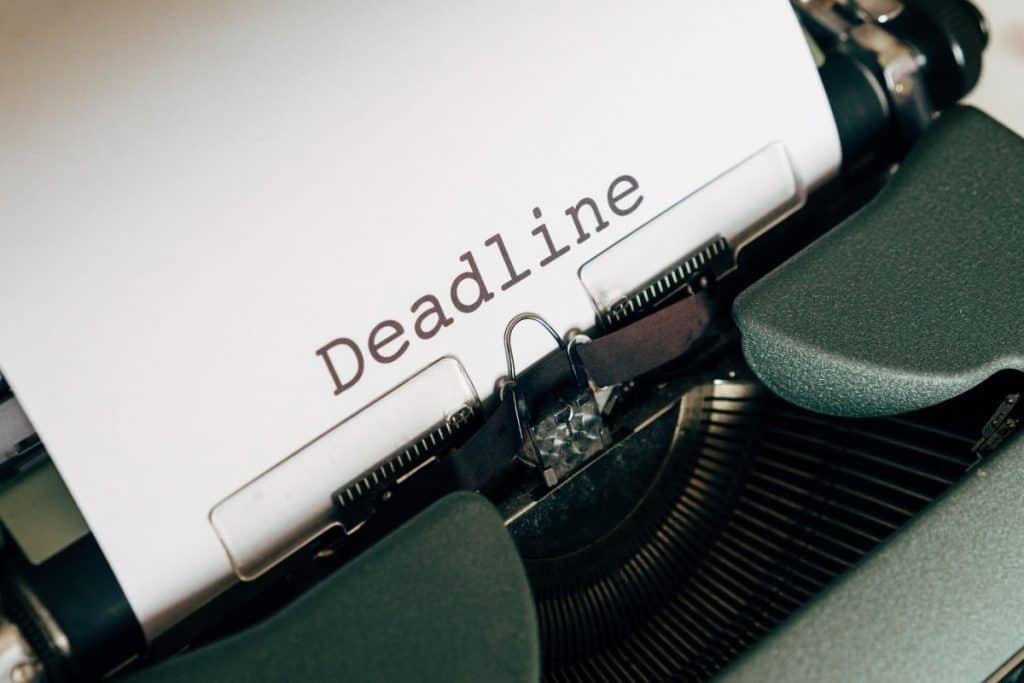
Working Under Pressure Skills:
Being At Your Finest
When It Counts The Most
By
Professor Theodore Henderson
“Pressure comes from within and so must be mastered from within.”
~ Ed Jacoby
Everybody is subject to pressure at certain times but in particular most of the time at work. But some individuals feel it much more than others. And many other people handle the same pressure differently. Lastly, there are still more people that fold under even the tiniest pressure. In contrast, others prosper under a moderate amount of stress but crumble under the power of pressure as its magnitude increases.
However, there is also a relatively small group of people that appear to be addicted to pressure. They frequently work in highly stressed environments such as on Wall Street, hospital emergency rooms, or risk-taking entrepreneurs. Offered an expansive variety of reactions, pressure and stress are fascinating subjects.
John Gottman, a prominent psychologist, has shown his skill in predicting which couples will divorce with a precision rate of 94%. The very best requirement he has discovered to expect which marital relationships will last and which will not is the capability to deal with pressure. How couples handle high-pressure discussions in their relationship is the best predictor of marriage success or failure.
6 Strategies For Working Under Pressure Skills
Introduction and Background – the Need for Working Under Pressure Skills
The ability to handle pressure can positively affect every part of your life:
- Physical health.
- Mental and emotional health.
- Relationships.
- Parenting skill.
- Career.
- Financial resources.
Your skill in dealing with stress and pressure can affect these various elements of your life. Besides, the pressure is a standard part of life. Discovering how to manage it correctly makes a lot of sense. Hence the need for working under pressure skills.
Among the terrific misconceptions perpetuated relating to high-performers and pressure is that they “rise to the occasion.” The idea that some individuals perform at typical levels under normal pressure and then magically perform better under higher pressure has been proven to be false. But, they can carry on at a comparable level under high pressure while others suffer from more subpar performances.
Diverse studies of athletes, such as baseball players, golf enthusiasts, and basketball players, reveal interesting information. No one has actually consistently carried out much better under clutch conditions than they do under normal conditions.
Michael Jordan averaged 49.7% of his shots throughout his career. His portion when taking game-winning shots? 48.0%.
Despite any mythology, no player has ever been considered more dependable under pressure than MJ. Interestingly enough, even he was slightly worse under pressure than under regular game conditions. However, at the same time, he was still more remarkable than most. Yet, in the end, there is no proof that anybody performs much better under higher pressure.
Pressure impacts everyone. It affects some more than others. Those it affects less have good working under pressure skills.
Regardless of your present capability to deal with pressure, you can do much better. Having good working under pressure skills allows you to minimize your dip versus your competitors, colleagues. or teammates. Clearly an invaluable skill for entrepreneurs, business owners, professionals, and workers. There are numerous tools and methods available for those that wish to deal effectively with stress. The duty to utilize them is yours.
“Sometimes God’s way of answering prayer is not by removing the pressure, but by increasing your strength to bear it.”
~ Elizabeth George
Your Body And Mind Under Higher Than Normal Pressure?
Many people like to think they do their best work or have their most superior performances under pressure. We do our most excellent when the stakes are the highest. Correct? Wrong!
Many studies have actually revealed the opposite is true. We naturally get more defensive and play “not to lose” instead of to win under pressure. There is more focus put on avoiding risk than doing excellent work. It’s natural to take a technique that will decrease the probability of failure and criticism. This isn’t the time that individuals pursue an impressive outcome. In other words, performance drops, and we don’t perform as well.
Security becomes the target. Mediocrity is the outcome.
[the_ad id=”7341″]
The Biological and Physiological Realities of Pressure.
When your brain confronts danger, even an imaginary risk, it begins a cascade of physiological responses to prepare for that danger.
Sadly, these actions are tailored to enhancing your ability to react physically. You’re in a much better physiological state to run or battle.
However, your ability to make smart decisions is significantly compromised. Think of the number of times you made a decision that you are sorry for while you were under intense pressure? In those minutes, the impulse is to decide on a course of action that will relieve the pressure as soon as possible. The long-term effects are ignored more often than not.
Everything starts in the hypothalamus, which is a structure situated in the brain.
Two paths are activated when you feel stressed out:
1. The first path leads to the production and release of corticoids. These are select chemicals that allow the body to tap into the energy saved in the body.
2. The second pathway involves the production of adrenaline. This leads to the shaky, tense sensation you get before making a speech to a large audience. There are other indications of high adrenaline levels:
- Increased heart rate.
- Increased blood pressure.
- Slowed digestion.
- Dry mouth.
- Increased sweating.
- Boosted blood clotting.
- Increased muscle stress.
- Increased breathing rate.
These are outstanding actions to stress if you require to prevent being consumed by a Grizzly Bear or if you’re the victim of an attempted mugging on a dark street. However, they aren’t excellent reactions if you’re not in physical danger.
Long-lasting tension is highly damaging to the body and to brain tissue. This outcome can be mitigated or in some cases eliminated with the development of your working under pressure skills.
” A lot of directors do not desire the pressure of a film the size of Pearl Harbor. However, I enjoy it. I flourish on it.”
~ Michael Bay.
Your Mind Under Pressure.
The hormonal agents and chemicals released into your bloodstream don’t just impact your body. They impact your mind and thinking processes, too.
The mind goes through changes when dealing with pressure:
1. The instinct of self-preservation is likewise more powerful when under stress. Individuals are far more likely to engage in selfish habits while under pressure.
2. Thinking ends up being more short-term. Your brain desires relief now. You’re most likely to take the simple escape and feel much better today than to think about the long-term consequences.
[the_ad id=”8461″]
3. The upside gets more attention than the disadvantage when making decisions. For example, after a rough series at work, stopping becomes more attractive. You focus more on the upside of stopping than on the risks of giving up and being jobless. When you’re happier or more content at work, you’ll pay more attention to the negative aspects of quitting your job.
4. Stress decreases the brain’s capability to neglect diversions. This becomes part of the factory workers are more likely to make errors when under stress. It’s more challenging to stay concentrated on the work at hand.
5.Short-term memory, focus, and judgment suffer. The probability of impulsive behavior is increased.
While it was thought that tension and intense pressure over-engages and stimulates the brain, the facts lie in the other direction. Stress and pressure disengage a little package of nerve cells in the frontal cortex. This location is associated with decision making. In a sense, pressure makes you a little “dumber.”
“We all are creative by nature, but our creativity gets buried deep under the pressure of our day to day mad rush.”
~ Sukant Ratnakar
Making Better Decisions Under Pressure.
Pressure and poor choices frequently go together. There are several challenges to making wise decisions when your tension levels are high. Having recognition of this truth is an essential primary step.
When you’re under pressure, advise yourself that you require to be mindful prior to making any decisions.
Assault your stress from a physiological viewpoint:.
1. Make your brain more durable to the impacts of pressure. Mindfulness is the best preventative therapy for your prefrontal cortex. This is the part of your brain that is numbed by stress and intense pressure. When the prefrontal cortex isn’t at full capability, emotions have an excessive influence on decisions.
- When you’re mindful and focused, the brain retains the ability to filter out distractions, focus, and make wiser options.
2. Decrease. The effects of stress accelerate your actions and thoughts. This produces a lot more stress. It’s challenging to slow down when you feel forced to rush, but slowing down is an efficient method to get out of your head and be more conscious. Decreasing also supplies more time to believe.
- Your responses to stress don’t need to be automated. You can create a little breathing room and take back control.
3. Breathe. Breathing is one of the few physiological procedures you can control. You’re able to breathe faster, slower, deeper, more shallow, or hold your breath at will.
- Assume control of your breathing when you start to feel stressed out. Attempt breathing in slowly for 4 seconds, hold your breath for 2 seconds, then exhale for 4 seconds. There’s no reason to breathe deeply.
- Take breaths of regular depth, comprehending the natural response during times of pressure is to breathe shallowly. Take the same breath you would take if you were relaxed. Breathing too deeply and overfilling your lungs creates discomfort and more tension.
[the_ad id=”7373″]
4. Relax your muscles. Relaxing your body will reduce the tension you feel. It’s natural for your muscles to tighten up and hold stress. A massage or progressive relaxation recording can launch a lot of tension from your body.
The influence on your body and mind from pressure-filled circumstances is real. Utilize your body to fight stress and anxiety. These tools can take some time to ideal, so start utilizing them right away.
“Focusing on what you do well as a player and on what you can control within the game takes the pressure away.”
~ Mike Johnston
Psychological Approaches To Handling Pressure
There are likewise mental methods to resolve your stress. Utilize every tool offered for you. The physiological mechanisms are beneficial but are a lot more powerful when coupled with cognitive tools. Attack your natural reaction to pressure from every angle.
1. Pressure doesn’t demand that you act in a specific way. An individual thought, belief, or emotion doesn’t need to lead you to a specific action. You have the alternative to thwart your instincts and be more deliberate in your decisions.
– Just because you’re feeling frenzied or feel that you need to choose rapidly does not mean that you should select a strategy impulsively. You can decide purposely to take your time and consider your options.
2. Look ahead, far into the future. When you’re 90, will you appreciate that massive report your employer wanted their desk by Friday close of business? Will the tension and stress of paying your bills 40 years ago matter?
- Think of the things you were stressed out about 25 or 30 years back. What do you think of them now? You’ll feel this precise way twenty years from now.
3. Think about that you may have more than one suitable choice. There’s a propensity to think that you just have one decent choice, specifically when stressed. Just because you have multiple options doesn’t indicate that one of them is terrible.
4. Concentrate on what you really want. Under pressure, we tend to make decisions to prevent unfavorable outcomes instead of pursuing positive results. Choose what you want, then make a decision that supports that. Anxiety magnifies the negative. Refocus your attention back to the positive.
[the_ad id=”7263″]
5. Regard pressure as an opportunity to have a good time or to challenge yourself. You can select to embrace these moments instead of fear them.
- When these situations are deemed do-or-die, your self-confidence fails, and your worry of failure grows.
- We react favorably to a non-threatening obstacle. The physiological response to a healthy test reinforces your capability to carry it out. Your body is more able to perform, and you think with more clarity.
- We wilt under pressure and flourish on challenges, so we turn everything into a personal difficulty. Obstacle yourself to see if you can discover the best service while staying delighted and unwinded.
6. Reduce the stakes. Dominating a putt to win the Masters, the golfer would be a good idea to tell himself, “It’s just another putt.” The more vital you make the occasion in your mind, the more pressure you’ll feel.
- Have the awareness that it doesn’t matter. It may seem strange, but it’s no more ludicrous than convincing yourself that the circumstance is more vital than it is.
7. Put your concentration on the job, not the outcomes. That’s another way of keeping your attention on answers and executing those solutions instead of on the obstacle.
- By concentrating on the task, your brain will be cued to do the right things. If you need to complete a report, you’ll understand that you must utilize the last quarter’s financials. You may never take a look at the financials if you’re too wound up worrying about what will take place if you don’t get it done.
- For longer jobs and challenges, keep advising yourself of your objective. Remind yourself each day.
- You’ll discover that focusing on each step of the service is the very best method to increase the chances of success.
8. Keep in mind the times you were at your best. Recalling your previous successes increases your self-confidence and decreases doubt. Reflect on your greatest hits, especially if you have positive memories from your past comparable circumstances to your current difficulty. If you achieved success when you can be successful again.
9. Depend on your senses to keep you grounded. Your mind cuts loose when you’re stressed. Your thoughts are all over the place except the moment you are in. A speedy way to bring your mind back to the present moment is to concentrate on your senses.
- What do you see today? Describe 5 things that you’re able to see. Describe them specifically. Speak aloud if you can.
- What do you hear at present? Close your eyes and detail what you hear.
- What do you feel? Are you cold, feel the pressure or pain in your back? Are you feeling the earth below your feet?
- Ask yourself these questions and address these concerns several times every day and whenever your focus is wandering.
10. Prepare and practice. We’re under differing amounts of pressure each day. Prepare and practice in situations that involve reduced stress. If you can deal with slightly demanding circumstances more effectively, you’ll progress at handling more intensely stressful situations. Some lower tension circumstances may consist of:
- – Being trapped in traffic
- – Enduring a mind-numbing conference or meeting
- – Having a discussion with someone you do not like
- – Giving a short presentation or one to a small audience
- – Hosting a celebration or event
- – Utilize your tools on reduced stress scenarios, even if you don’t require them. Suppose you don’t use them throughout reduced-stress situations. In that case, they will not be readily available when you need them one of the most. Practicing is necessary.
There are many mental tools available. They either can reduce the pressure you feel or increase your ability to target your attention and make significant decisions despite it. Once again, practice is essential.
Begin utilizing these tools in your life. Your ability to focus, delight in life, and make wise decisions will flourish. Utilize your mind to your benefit.
Finally, you can use technology to help with limiting distractions and helping you focus. FocusMe is my favorite for overcoming distraction and digital addiction. Click here for more info.
“Resist the suppressive pressure to contract, and instead expand in defiance.”
~ Bryant McGill
Ideas For Being Mindful In Difficult Circumstances.
You already know how to use your senses to be more mindful; however, you can utilize many more techniques. Increased mindfulness will help in other areas of your life. Individuals who are more conscious report that they have much better relationships, sleep better and experience more joy in their lives. Mindfulness resembles the vitamin tablet of psychological health.
What is mindfulness? Mindfulness is focusing in a specific manner. You select what you’re going to take notice of, and you pay attention in a non-judgmental method. For example, let’s say you encounter a homeless guy on your walk to work. You take notice of their shoes.
Up until now, so great.
But once you make a judgment about their shoes, you’re no longer being mindful. You may state to yourself that their shoes are cheap, filthy, tattered, and even brown. You may note to yourself that they have a great pair of shoes. It doesn’t matter whether your judgment is unfavorable, neutral, or favorable. Once you use a label to the shoes in your mind, you’re no longer in a state of being mindful.
If you can go through your day in this manner, you will find it incredible how relaxed and delighted you may feel.
You’ll be pleasantly surprised!
Learn to be mindful during the toughest of times:
1. Concentrate on your breathing. Simply observe your breathing. Recognize how the air feels when it flows through your nose. Regard how your chest and stomach move.
- The secret is to observe, not make a ruling or an appraisal. If you state to yourself, “I never ever noticed how huge my waistline is from this angle,” you’re not mindfully taking notice of your breath. Prevent labeling your breath as significant, bad, big, tiny, or anything else. You’re merely observing it.
2. Use basic jobs as practice. While you’re getting dressed, do not consider anything else besides getting dressed. The very same showering, commuting to work or eating your dinner. Bear in mind your activities.
3. Pay attention to nature. Bear in mind a natural object, such as a tree or a bird, in your environment. Just notice it and keep your thoughts peaceful. Observe everything about it without talking with yourself about it. Don’t say to yourself, “That bird sure is red.” You’re taking a look at it, so there’s no reason to tell yourself something you currently understand.
- If you’re stuck inside your home, look out a window, or utilize an online photo. Sounds simple? Yes you are right but that is why it can be so effective.
4. Use an alarm. Use a timer to remind yourself to be mindful many times during the day. Perhaps once an hour, invest one minute or more, being as mindful as possible. It will soon end up being a practice.
5. Meditate. Those that meditate regularly are very forthcoming about the advantages. There are several methods to meditate, but the easiest is to sit and concentrate on your breath for at least 10 minutes. When your mind wanders off, and it will bring your focus back to your breath.
- It’s hard to believe that something so simple can supply such compelling advantages. Keep at it. Over a while, work your way up to thirty minutes or so daily or several times a week.
Everybody can benefit from being more mindful. It’s not just for monks practicing meditation in a monastery. Mindfulness has ended up being a popular tool in the field of psychology. You have everything to gain type, increasing your capability to see the world from a mindful point of view.
“If you want to be a successful player, you have to learn how to handle pressure — how to stay cool when it counts, especially in big games.”
~ Michael Parker
Conclusion – Working Under Pressure Skills
Stress and pressure belong to human existence. Consider that if your ancestors never felt nor reacted to pressure or anxiety, you would not be here. Your genes would have been wiped from the Earth long ago.
However, times have evolved. Those living in developed countries do not deal with the kinds of threats that afflicted our ancestors. We have plenty to eat, nobody is trying to eliminate us in a war, and we’re not being chased after by wild animals. The need for a strong physiological reaction to stress hardly ever exists anymore as an everyday occurrence.
You have obstacles. However, the battle or flight reaction does more harm than good in the modern world. It’s doubtful if you could ever eliminate these automatic responses. However, you can lessen them and enhance your capability to work through them without being adversely affected by their impacts.
Pressure results in physiological changes that change the method your brain works. The ability to make great choices and neglect distractions are weakened. Your brain attempts to eliminate the pain brought on by adrenaline, even at the cost of your long-term success. All it wants is relaxation and a reprieve.
Tools exist to lessen the impact of these unfavorable physical reactions. You can likewise find out to become more at peace with them.
As with anything else, the key to success in dealing with pressure is understanding and practice. Prepare and practice making the right decisions and remaining focused throughout mildly stressful situations. The simulation will show itself to be indispensable when the pressure is on, and you need to be at your finest.
Keep in mind that nobody is really at their finest when under a high level of pressure. Enhancing your skills at handling pressure-filled scenarios will guarantee that you can do your finest in these situations.
Additional References
5 Ways To Eliminate Distractions For Success
Performing Under Pressure: The Science of Doing Your Best When It Matters Most
Performance Success: Performing Your Best Under Pressure (Theatre Arts)
About The Author
Theodore Henderson works with business owners, entrepreneurs, and corporate professionals on their business skills, marketing, and leadership strategies. He is an Amazon best-selling author, a Certified Career Coach, Business Skills & Leadership Coach, and a Certified Social Media Security Professional Powered by CompTIA.
–
Visit The Wisdom4Business Blog for the complimentary series on business startup and entrepreneurship.
–
Also, visit TheHealthyBusinessOwner.com for timely and useful tips and strategies for living a healthier lifestyle.







